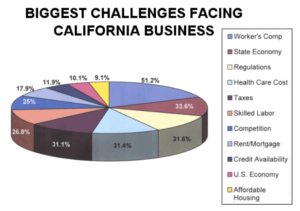How Much Did California Taxes Affect NBA Free Agency?
The NBA finals are now in the rear view mirror, as is the league’s draft. In fact, the free agency period has largely ended as well, as far as the big-time impact players are concerned. It was an unusual year for free agency, as some of the most recognizable and marketable teams were mostly shut out in the free agent frenzy, including the New York Knicks and Los Angeles Lakers.
The Warriors and Clippers were able to keep their big name players that could have flown the coup for so-called greener pastures, but one of the most successful franchises in the history of the game could not get anyone to bite. Could it be that the Lakers have completely lost their mojo? That’s a debate for the sports experts, but what is up for open debate is whether or not California’s taxes played a role in where players chose, or didn’t choose to sign.
There are several possible reasons that this year’s crop of free agents could have chosen other teams besides the Lakers. However, there is also a definite possibility that the state’s huge income tax rate had something to do with it. California has the nation’s highest state income tax at 13.3 percent. Could that have been a deciding factor for some of these athletes? We can’t know for sure, but when you look at the case of free agent forward LaMarcus Aldridge, you can’t help but wonder.
Aldridge left the Portland Trailblazers for the San Antonio Spurs. Aldridge twice met with the Lakers before ultimately selecting San Antonio. The difference in his tax bill is huge when you consider that Texas has no state income tax. At four years and $80 Aldridge would’ve paid roughly $10 million in state income taxes had he signed with the Lakers. That’s a huge difference. While Aldridge may have chosen the Spurs for many other reasons, it’s very likely that the tax equation had something to do with his decision.
How to Successfully Sell Your Company
How to Successfully Sell Your Company Tips for Privately-Held Business Owners By Jason Pfannenstiel Be clear about your motivation for selling. Reason for the sale is among the first questions buyers will ask. Your personal and professional reasons should be more than simply wanting to cash out for a certain magical dollar value. Before you…
15 Ways to Improve Your Cash Flow Now
15 Ways to Improve Your Cash Flow Now By Howard Fletcher Cash management theory and techniques are well understood and practiced by treasury managers in large corporations. They use sophisticated models and cash management tools that allow them to predict and manage cash. Many of these are beyond the reach or need of small companies.…
Survey: Biggest Challenges Facing California Businesses
Survey: Biggest Challenges Facing California Businesses A recent survey was conducted to determine what business owners in California thought the biggest challenges facing their businesses were. Out of 1500 questionnaires, these are the percentage of respondents who checked off a box next to each challenge. (Respondents were allowed to select more than one box, so…
5 Strategies to Successful Cash Flow Management
5 Strategies to Successful Cash Flow Management By John Reddish How can you predict, avoid and/or, minimize the impact of a cash emergency? Managing cash flow is every manager’s challenge, every day, every year. Those managers who keep a close eye on their daily activity and emerging industry trends can help reduce their company’s exposure…


